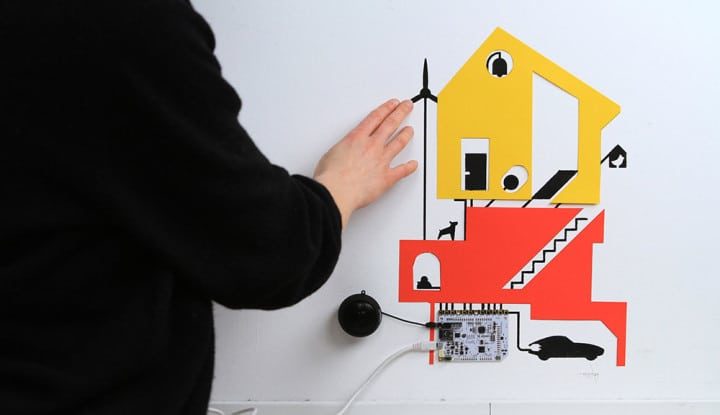
Five Ways to Avoid Being Ripped Off By Contractors
Remodelling your house can be quite a nightmare, especially if you are dealing with the wrong individuals. Sadly, this situation is all too common among homeowners who want to improve their residence. When you are being ripped off, you can lose a lot of money or you get sub-par construction quality for the agreed amount. Here are things you should do:
- Don’t immediately hire the lowest bidder: It doesn’t mean that the lowest bidder is always bad, but some could have dirty tricks up their sleeves. A common trick is that they intentionally not complete the project as agreed, then they say that it’s due to unforeseen conditions or problems with design drawings. When hiring a contractor, make sure that they will agree to specific project value. So, they won’t be able to increase funds later. Also, the project contract agreement needs to emphasize on the completion of the project. So, contractors will be motivate to complete their tasks.
- Check the size of the bond: By being bonded, it means that the contractor stores an amount of money in the special account. You will hold the bond until the home improvement project achieves the Substantial Completion stage. This will protect you against a contractor that disappears before the project is completed. If the contractor can’t perform, you may issue the notice of termination. You can use the money in the bond certificate to hire another contractor who can finish the job properly.
- Don’t allow substitutions: If you allow the contractor to choose products like carpet, paint, fixtures, plumbing parts and others, then you need to legally allow that in the construction documents. Sometimes, contractors promise that you can get better items for unusually lower price. For homeowners with limited budget, it can be tempting to just say yes. Only allow substitution if you are convinced about the trustworthiness of the contractor, so you can really save money.
- Don’t always take their word on the percentage completed: Every week, your contractor needs to submit a report on the extent of the project. If you are not sure whether the contractor is honest, always open to a possibility that they overstate the percentage of the project completed. Contactors could do this if they want to get cash faster. Make sure that the contractor doesn’t really seek to extra a big percentage of the agreed fees early on. If you trust dishonest contactors too much, it will be an incentive for them to abandon the project.
- Make sure that sub-contractors get paid: There could be one or more subcontractors who are working under the main contractor. Usually, it’s the responsibility of the main contractor to make sure that sub-contractors get paid. If sub-contractors don’t get paid, it’s possible that they place a lien on the property, to ensure that they will be paid. If the main contractor secretly wishes to abandon your project, you can guarantee that sub-contractors won’t get paid. Make sure that the construction document includes the schedule of payments to sub-contractors.
Post a Comment
You must be logged in to post a comment.






2compunction
2shuttle
what is dissertation
how long is a dissertation https://professionaldissertationwriting.org/
buy a dissertation online help
undergraduate dissertation https://professionaldissertationwriting.com/
phd thesis vs dissertation
cheap dissertation help in los angeles https://helpwithdissertationwritinglondon.com/
buy art online berlin
proposal and dissertation help 2000 words https://dissertationwritingcenter.com/
uk dissertation writing help quotes
thesis help https://dissertationhelpexpert.com/
writing the doctoral dissertation
dissertation writing services uk https://accountingdissertationhelp.com/
doctoral dissertation writing assistance
help tutor https://examplesofdissertation.com/
help with my dissertation
dissertation meaning https://writing-a-dissertation.net/
rutgers dissertation proposal help
custom dissertation writing https://bestdissertationwritingservice.net/
data analysis dissertation help
dissertation vs thesis https://businessdissertationhelp.com/
dissertation title generator
dissertation help galway https://customdissertationwritinghelp.com/
writing papers
dissertation help near me https://writingadissertationproposal.com/
how long should a dissertation be lse
buy dissertation online https://dissertationhelpspecialist.com/
marketing acknowledgement
online dissertation help veroffentlichen https://customthesiswritingservices.com/
no deposit free bonus online casino
online casino guide https://download-casino-slots.com/
goldennugget casino online
parx online free casino https://firstonlinecasino.org/
sugarhouse online casino nj
golden nugget online casino promotions https://onlinecasinofortunes.com/
online casino free bonus
four winds online casino app https://newlasvegascasinos.com/
online casino nj
best online casino canada https://trust-online-casino.com/
online casino no deposit codes
speaking rock casino online gambling https://onlinecasinosdirectory.org/
online casino list
virgin casino online https://9lineslotscasino.com/
online casino bonus code
pa online casino https://free-online-casinos.net/
jacks casino online
riversweeps online casino free bonus https://internet-casinos-online.net/
baccarat online casino
live casino online pa https://cybertimeonlinecasino.com/
top online casino reviews
bonus online casino https://1freeslotscasino.com/
ruby fortune online casino
golden nugget online casino promo code https://vrgamescasino.com/
online casino best payout
new michigan online casino https://casino-online-roulette.com/
pala casino online
las atlantis online casino https://casino-online-jackpot.com/
vegas casino online
online casino for us players https://onlineplayerscasino.com/
best online casino promotions
hardrock online casino https://ownonlinecasino.com/
casino online best payout
online casino bonuses no deposit https://all-online-casino-games.com/
best us online casino
casino online best payout https://casino8online.com/
best vpn?
opera vpn review https://freevpnconnection.com/
vpn for pc free
private internet access vpn https://shiva-vpn.com/
free pc vpn
wirecutter best vpn https://freehostingvpn.com/
astrill vpn
best ios vpn free https://ippowervpn.net/
avast secure vpn
best vpn for india https://imfreevpn.net/
business class vpn
best vpn for ubuntu https://superfreevpn.net/
best torrent vpn
vpn for pc free https://free-vpn-proxy.com/
best vpn services
best free phone vpn https://rsvpnorthvalley.com/
gay dating sites yahoo answers
gay sex dating https://gay-singles-dating.com/
gay senior dating san antonio
gay right wing dating site https://gayedating.com/
gay dating for country folks
gay free dating 4 older uk https://datinggayservices.com/
facebook dating site
free site dating https://freephotodating.com/
dating usa
meet singles online dating https://onlinedatingbabes.com/
local free personal ads
our time dating service https://adult-singles-online-dating.com/
dating services melbourne
n dating site https://adult-classifieds-online-dating.com/
best online dating websites
ourtime dating site https://speedatingwebsites.com/
text hot naked singles
free date https://datingpersonalsonline.com/
free local personals
ourtime login canada https://wowdatingsites.com/
date free site
local personals https://freeadultdatingpasses.com/
free dating sites no fees
local dating https://virtual-online-dating-service.com/
singles chat
free dating online chat https://onlinedatingservicesecrets.com/
real money online casino no deposit bonus
jackpot city online casino https://onlinecasinos4me.com/
hard rock casino online
best legit online casino https://online2casino.com/
gta online casino car
casino online sin deposito https://casinosonlinex.com/
gay boy teen webcam chat
free gay radom ewb chat https://newgaychat.com/
gay adult phone chat
gay daddy chat https://gaychatcams.net/
free gay phone chat trial
gay cam chat https://gaychatspots.com/
1-800 contacts refined gay men chat
in gay chat what is an poz? https://gay-live-chat.net/
free gay chat fcn free chat network
arab friends gay webcam chat https://chatcongays.com/
black bottom gay chat room
free gay phone chat line https://gayphillychat.com/
gay chat ru=oulette
gay/bi men chat world https://gaychatnorules.com/
gay chat no registration
gay male chat site https://gaymusclechatrooms.com/
gay chat and hookup
gay chat roullrtte https://free-gay-sex-chat.com/
b - gay chat
rhode island free chat gay https://gayinteracialchat.com/
websites to type papers
can i pay someone to write my paper https://term-paper-help.org/
pay someone to write a paper for me
need help with paper https://sociologypapershelp.com/
help writing college papers
write my paper co https://uktermpaperwriters.com/
college papers to buy
cheapest paper writing service https://paperwritinghq.com/
buy a paper for college
buy a college paper https://writepapersformoney.com/
help writing college papers
help writing paper https://write-my-paper-for-me.org/
online paper writers
do my paper for me https://doyourpapersonline.com/
help writing papers
buy a college paper online https://top100custompapernapkins.com/
write my paper online
buy custom paper https://researchpaperswriting.org/
paper writer online
apa papers for sale https://cheapcustompaper.org/
write my thesis paper
buy resume paper https://writingpaperservice.net/
need someone write my paper
someone write my paper https://buyessaypaperz.com/
custom paper services
buy a literature review paper https://mypaperwritinghelp.com/
order a paper
paper writer services https://writemypaperquick.com/
someone to write my paper for me
paper writing service cheap https://essaybuypaper.com/
i don't want to write my paper
write my papers discount code https://papercranewritingservices.com/
help with college paper writing
i need help writing a paper https://ypaywallpapers.com/
pay for someone to write your paper
custom paper services https://studentpaperhelp.com/
2bedraggled
3equipment
coursework planner
coursework planner https://brainycoursework.com/
differential equations coursework
courseworks help https://mycourseworkhelp.net/
coursework
do my coursework for me https://courseworkdownloads.com/
courseworks help
coursework moderation https://courseworkinfotest.com/
coursework questions
creative writing english coursework https://coursework-expert.com/
coursework history
custom coursework writing https://teachingcoursework.com/
coursework sample of written work
coursework sample of written work https://buycoursework.org/
courseworks help
custom coursework writing https://courseworkdomau.com/
dating free chating
free sites of dating https://freewebdating.net/
matchmaking services
meeting with my lady https://jewish-dating-online.net/
freeadultdating
free dating date https://free-dating-sites-free-personals.com/
all dating sites in usa
europe free chat https://onlinedatingsurvey.com/
danting site
tinder web https://onlinedatingsuccessguide.com/
westminster dating app the world
free date site https://onlinedatinghunks.com/
online free
singles websites https://datingwebsiteshopper.com/
date free service
women dates local no fee https://allaboutdatingsites.com/
dating best site
senior bi log in https://freewebdating.net/